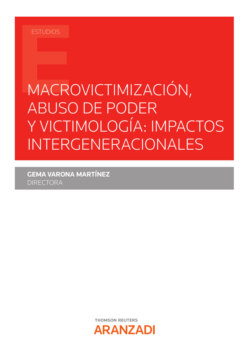Читать книгу Macrovictimización, abuso de poder y victimología: impactos intergeneracionales - Gema Varona Martínez - Страница 33
На сайте Литреса книга снята с продажи.
2.3. Victims of the fight against terrorism
ОглавлениеVictims of human rights violations committed in the context of the fight against terrorism are protected by a series of European instruments161 which recall that the fight against terrorism cannot in any way exempt Member States from meeting their obligations under international and European law (in particular human rights law, international humanitarian law and refugee law). In the last few years, the EU has paid increased attention to the issue of respect for human rights in the fight against terrorism, as illustrated by the evolution of counter-terrorism instruments. While the 2005 EU Counter-Terrorism Strategy162 contained no reference to human rights law, the revised Strategy of 2014163 stresses the need to respect fundamental rights and the rule of law in the fight against terrorism, pointing out that human rights violations provoke feelings of anger and injustice conducive to terrorist radicalization164. The 2017 Directive on combating terrorism165 also includes a provision specifically devoted to the respect of “Fundamental Rights and Freedoms” (Article 23), a provision that was not included in the 2002 Framework Decision that the 2017 Directive replaces.
Similarly, the Council Conclusions on the renewed EU Internal Security Strategy for the period 2015-2020166 and the Conclusions on enhancing the criminal justice response to radicalisation leading to terrorism and violent extremism of 2015167 stress the need to ensure respect for fundamental rights in all aspects of the fight against terrorism. Besides, Member States are invited to improve the conditions of detention of perpetrators of terrorist acts while implementing effective rehabilitation and de-radicalization programs in prison but also outside prisons with effective reintegration strategies.
The 2016 Conclusions on the prevention of radicalisation leading to violent extremism168 also encourage the development of de-radicalization and rehabilitation programs for returnees, their families and in particular their children. In this respect, the 2018 Resolution on findings and recommendations of the Special Committee on Terrorism recalls that these children need protection measures as victims but also specific attention as they could also be potential perpetrators169. The 2018 Resolution also calls on Member States to guarantee individuals effective remedies to challenge violations of their fundamental rights committed in the fight against terrorism (including those relating to privacy and data protection, freedom of thought and expression, non-discrimination, procedural safeguards such as the presumption of innocence, the right to a fair trial, the right to information, and control by a judicial authority)170. The 2018 Resolution also stresses that “inhuman detention conditions, overcrowding and ill treatment are counter-productive as regards the objective of combating radicalisation and violent extremism”171. The Parliament points out that even if the prevention of radicalisation in prisons may require to establish differentiated detention rules, any specific programme dedicated to a certain group of prisoners must respect the same human rights and international obligations as for any prisoner172.
